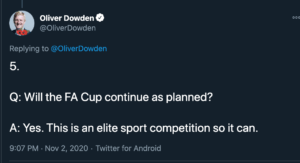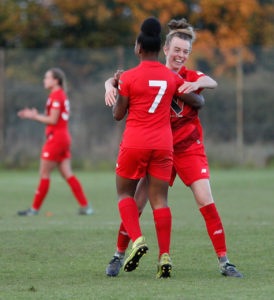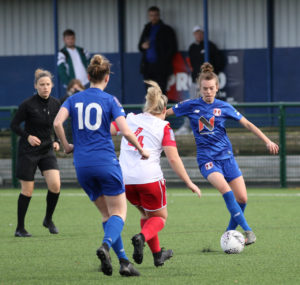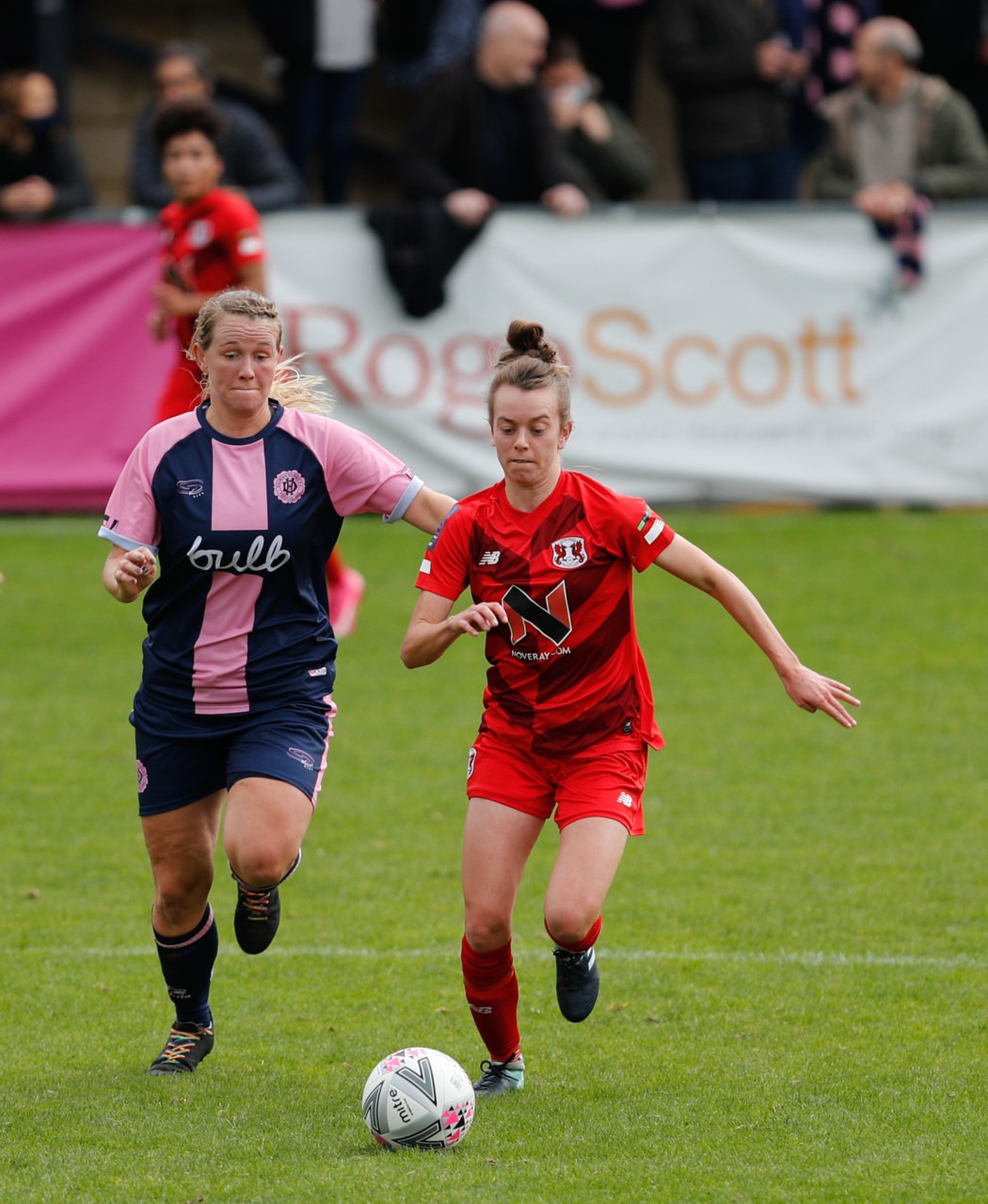On Tuesday morning, in line with the government’s national lockdown, the FA confirmed the suspension of all “non-elite” sport until December 2.
The FA’s definition of “non-elite” includes the Women’s National League, the division in which Leyton Orient WFC currently reside.
The FA’s announcement will have far reaching consequences throughout the women’s game, none more so than for the players themselves.
Orient midfielder Lauren Heria is one such player who has major question marks regarding the decision.
‘Frustrating’ Decision
“I was very disappointed in how the first lockdown was handled in regard to women’s sport. Obviously at that stage neither the Women’s Super League or the Championship got to continue, and for the Women’s National League and below, our leagues weren’t settled on PPG they were just abandoned. So, I already had that as my context of implications of lockdown.
To see that now the WNL won’t be continuing during this period and there really wasn’t much depth to how that decision had been reached, I found that very disappointing and quite frustrating.”
Prior to Tuesday’s announcement, the Secretary of State for Digital, Culture, Media and Sport Oliver Dowden, posted a tweet that seemingly gave the go ahead for the Women’s FA Cup to continue.

However, it has now become clear that the Tory MP was referring exclusively to the men’s competition, something which irritated Heria.
“It’s disappointing when a minister who is secretary for Culture and Sport, literally doesn’t even acknowledge the Women’s FA Cup exists. I think that is just telling of a lot of the conversations that were happening behind closed doors and where maybe the priorities lie.”
Orient WFC will have to wait at least a month now to play their FA Cup tie against Eastbourne, which is in stark contrast to their male counterparts who take on Newport County this Saturday. Heria feels that it would have been feasible for her side’s tie to have still gone ahead.
“I do understand we’re not at the First Round proper yet, we’re still in the qualifying round, but I think the number of teams we’re dealing with within the Women’s FA Cup is small at this stage and I think you could facilitate for it to go ahead. There is a disparity there when you compare it to the men’s game.”
Men’s Sport Is The Focus
The FA’s decision has affectively labelled the tiers below the top two divisions of women’s football as “non-elite”, a categorisation that has frustrated many and which Heria describes as unsuited to the women’s game.
“The problem lies with what you classify as elite and I think the definition of elite that the government and the FA are using has been derived from men’s sport as their primary focus. If you look at the definition with regards to players earning their living from playing sport and you apply that to women’s sport, it’s just not fit for purpose.
There needs to be more women at the top leading where that decision goes. It’s not okay just to pick up that the definition of elite works for men, works for the men’s FA Cup, works for the men’s leagues, can we just apply it to women too? By that definition the women’s games aren’t elite. I just think it’s too simplistic a view and it’s always going to have more of a detrimental impact on the women’s game.”

A lot of the wider conversation surrounding the government’s decision to lockdown has revolved around weighing up the public health risks of the virus against the adverse mental health effects that a second lockdown will undoubtedly bring for many.
Given the positive effects that sport can have on mental health, this is again another area the 25-year-old has identified as something the FA hadn’t comprehensively considered when making their decision.
“Looking at our league, I’m not aware of any reported outbreaks of COVID, I know the Midlands League have had teams had to postpone fixtures but from my understanding it didn’t then result in a big outbreak in the league. I think actually the physical risk of the virus transmitting at football games is maybe lower than that actual mental health impact.
The biggest feeling I get is coming off the pitch and coming away from training with that buzz and that sense of wellbeing. I think that comes in part with the physicality of sport and the endorphins, but also it includes being around the team and particularly now a lot of people are going through challenges, with regards to their job or their family members are unwell whatever it may be. Having that ability to go somewhere, do your sport and completely disassociate yourself from everything else in the world is just so important.”

As well as turning out for the East London side, Heria also studies Sport Business at Loughborough University, and when asked how she feels the FA could improve the situation, she stated.
“I’d love to get the opportunity to speak with someone at the FA about how I’ve experienced this as a player and I would love them to engage with the National League, with the coaches and find out what they can do to support the women’s game at this level. That’s where I think the FA needs to go from here. Will that happen? I’m doubtful.”
Heria has been an ever present in the O’s midfield this season and she’ll be looking to continue that run, post lockdown, on December 6 when her side will be hoping to take to the field for their FA Cup tie against Eastbourne. Something that she feels the O’s will be well equipped to handle thanks to the support of their backroom staff.
“We’re very fortunate at Leyton Orient with the strength and conditioning coaching we receive, we’ve got three staff who are going to put together a plan for us. Chris, our manager, has already outlined the way he’s going to stay engaged with the players with video analysis as we’re very fortunate to have all our games recorded and we can go back and review that and use the training plans to ensure we keep fit.
We won’t be at full match fitness, which we worked really hard to gain over these first few months of the season. As women’s footballers we were coming off the back of a massive, massive gap in play, so there is going to be a drop in fitness which obviously risks players in terms of injury. It will result in a lower performance, however at Orient, we are fortunate to have the resources to make it work to some extent and we will be able to come out and give a performance when we return.”




